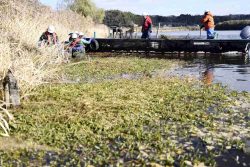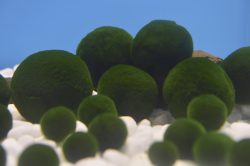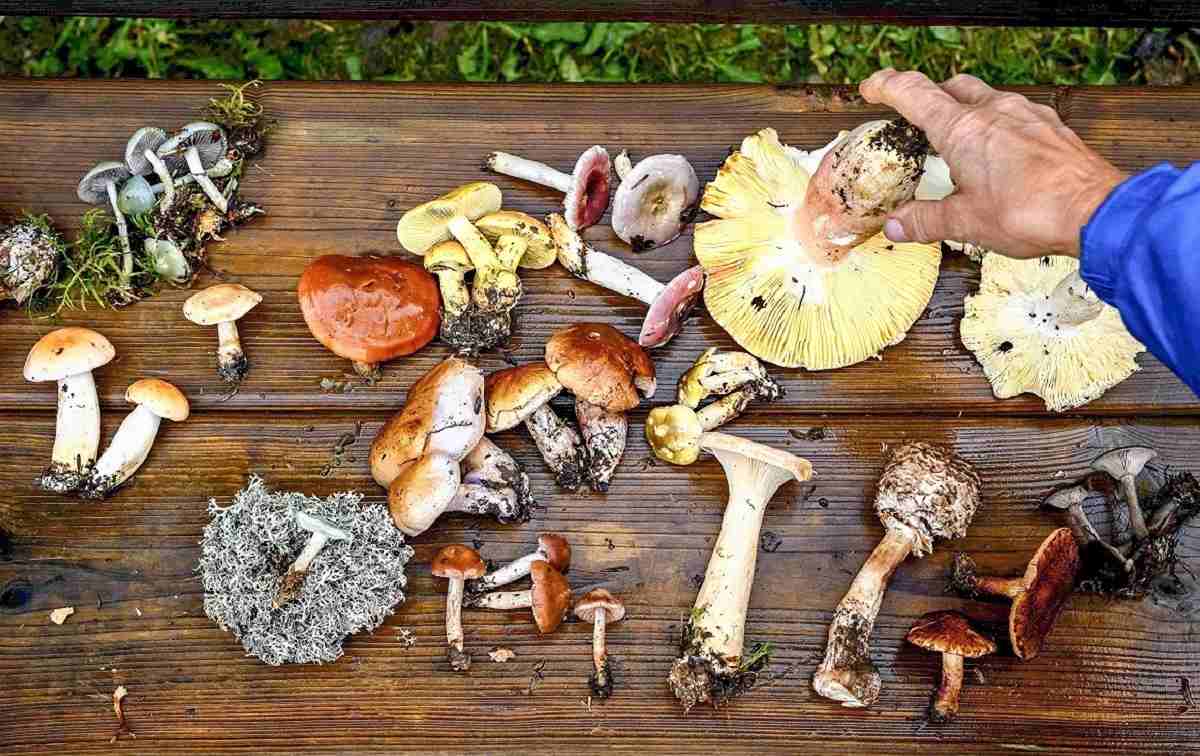
Mushrooms are seen on a bench during a picked mushroom checking session, part of a five-day workshop organized by the Swiss Association of Official Mushroom Control Bodies. Photos were taken in a forest near Les Mosses, Switzerland, on Oct. 10.
14:59 JST, November 15, 2024
LES MOSSES, Switzerland (AFP-Jiji) — After suffocating COVID-19 restrictions, many embraced the call of the wild and the joys of foraging, but tightening Swiss biodiversity protection measures are infuriating growing hordes of mushroom-picking enthusiasts.
The pandemic times “made people return to the forest,” said Jean-Michel Froidevaux, chairman of the Swiss Association of Official Mushroom Control Bodies, which regularly organizes training sessions for mushroom hunters and checks whether their foraged mushrooms are safe to eat.
“When you walk in the forest, there’s not much to do apart from look around — and then when you look down, you spot mushrooms.”
During training courses and picked mushroom checking sessions, “we saw loads of people who knew nothing about them,” he told AFP, during a five-day workshop in Leysin, high up in the Alps.
Faced with surging interest, the association has opened additional courses.
“Since 2020, it has exploded. We hardly have enough trainers,” said mushroom inspector Frederique Clerc, as she accompanied a dozen rain-soaked mushroom-lovers, or mycophiles, near Les Mosses, a village high in the mountain pastures near Montreux.
Jean-Paul Landraud, a retired pharmacist attending training courses with his wife, said interest in mushroom foraging was booming.
“I came before COVID and there were a few dozen of us. Now there are 120,” he said.
“It has become popular: everyone goes mushroom picking.”
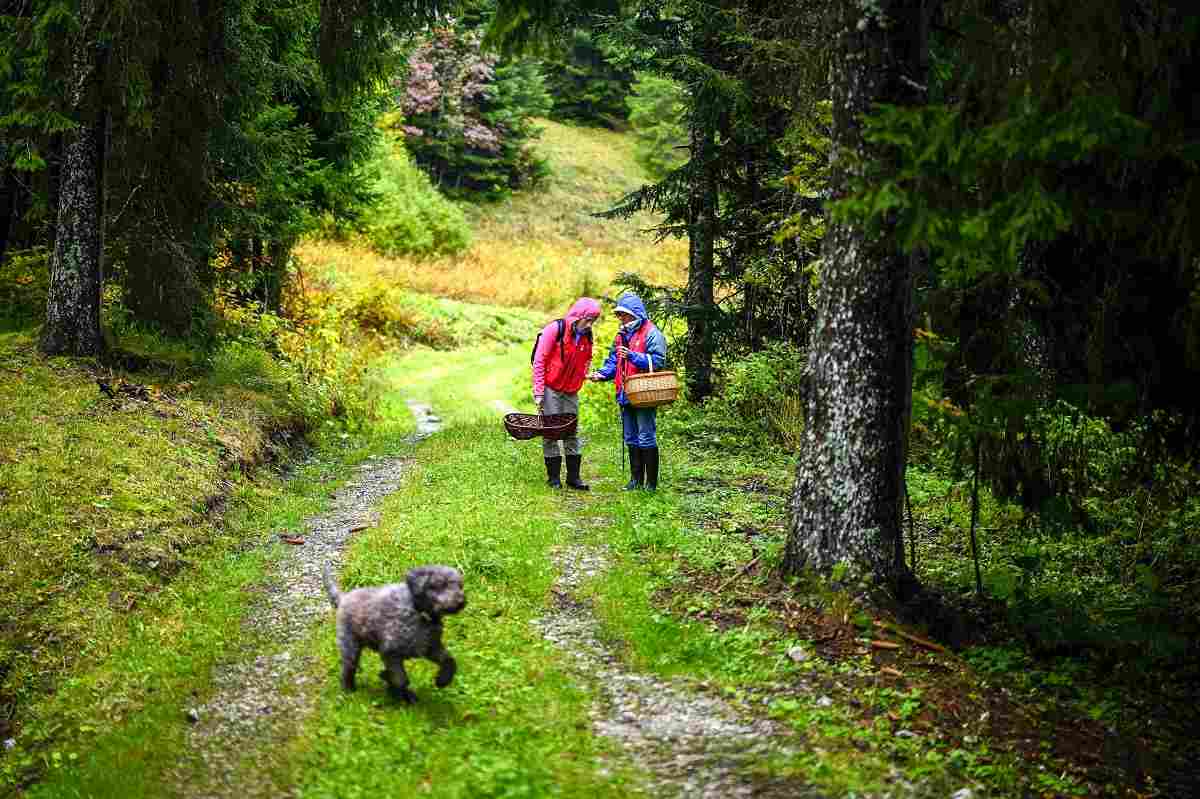
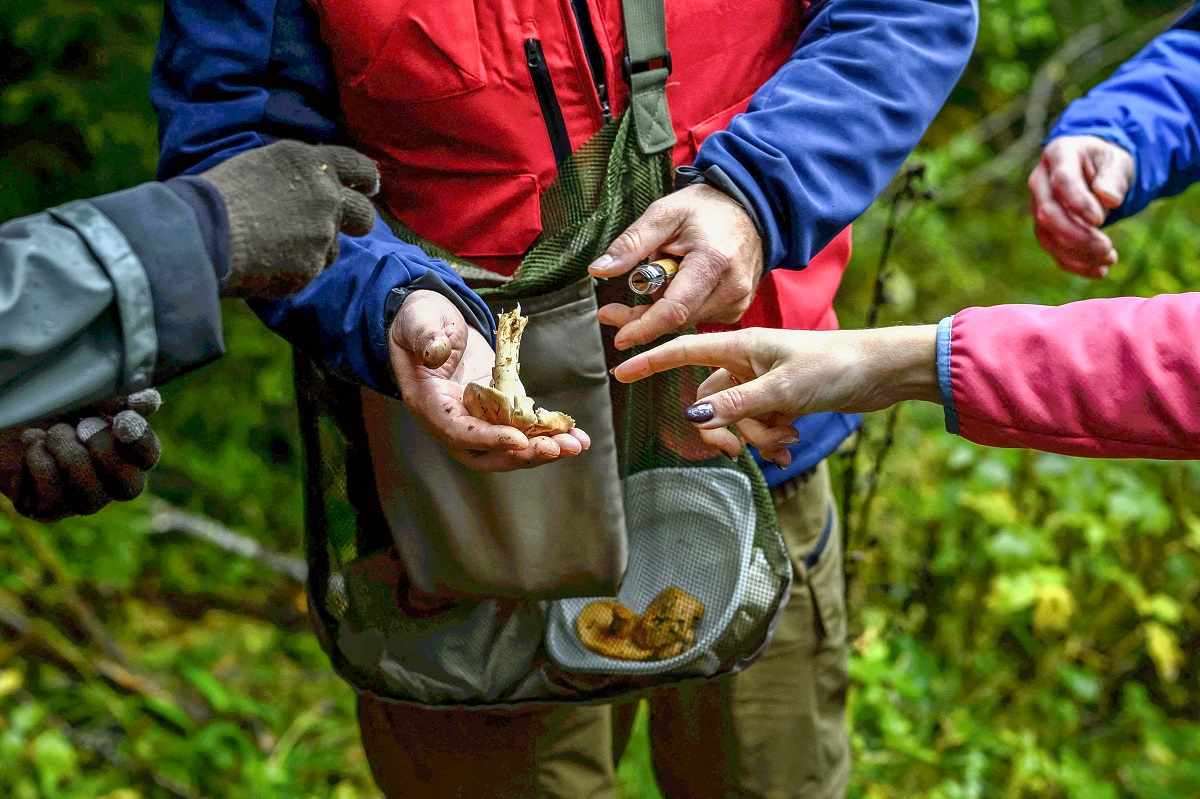
Left: Mushroom enthusiasts are seen during the session. Right: A mushroom is the subject of attention during the session.
Trampling on the soil
That enthusiasm has sparked fears, though, that all the foraging could have adverse impacts on biodiversity.
There is a burgeoning awareness of the importance of fungi, which, with their ability to decompose dead organic matter and to supply water and nutrients to trees, are considered guarantors of the forest ecosystem.
In Switzerland, several cantons had some restrictions pre-dating COVID on the number of days a year people could go picking and how much they could forage — and now the rules are getting tighter.
The western Vaud canton, encompassing Les Mosses and nearby Leysin, introduced new measures in July aimed at giving nature a break.
People can now forage no more than two kilograms of mushrooms per day, with picking prohibited in the first seven days of each month, and otherwise only allowed between 7 a.m. and 8 p.m.
Vaud’s measures have triggered indignation on social networks, and some politicians have demanded they be withdrawn.
“Everyone finds it ridiculous … we are very frustrated,” said Florence Wyss, a retiree who started taking mushroom-picking courses after undercooked foraged mushrooms landed her in hospital.
The Vaud biodiversity authorities insist that the measures are not about “stigmatizing” mycophiles.
For mushroom expert Clerc, the restrictions are a step in the right direction to promote respect for nature.
But Froidevaux said the seven-day ban was “difficult to understand.”
He noted that a 30-year study by the Swiss Federal Institute for Forest, Snow and Landscape Research showed that picking did not affect the amount or diversity of fungi.
The 2006 study did, however, show that trampling the ground had negative short-term effects, and suggested limiting the picking period.
Pro Natura, Switzerland’s oldest nature preservation organization, also warned the influx of people into the countryside “can have consequences for ecosystems,” such as trampled vegetation, disturbed wildlife or overexploited resources like mushrooms.
But “we are more concerned about sports activities, when they require the creation of new infrastructure, such as specific tracks for mountain biking,” the group’s spokesman Nicolas Wuthrich told AFP.
-
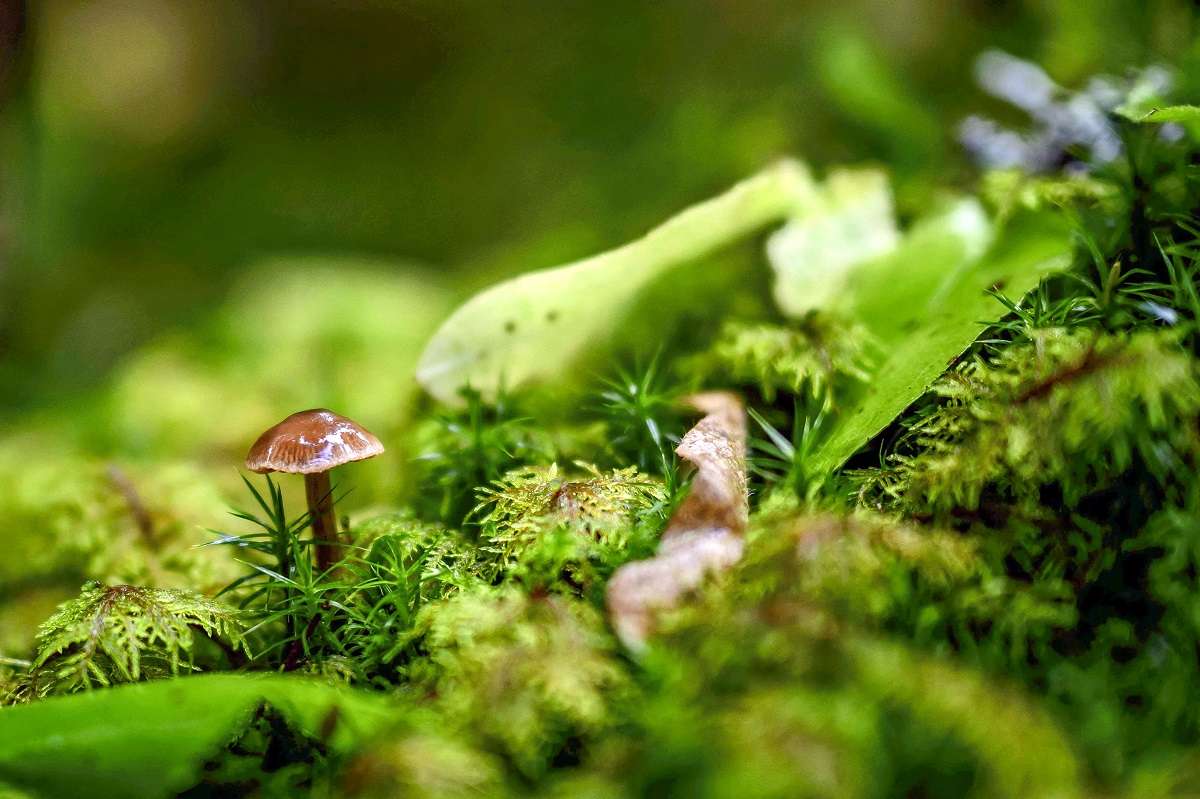
AFP-Jiji
A mushroom -
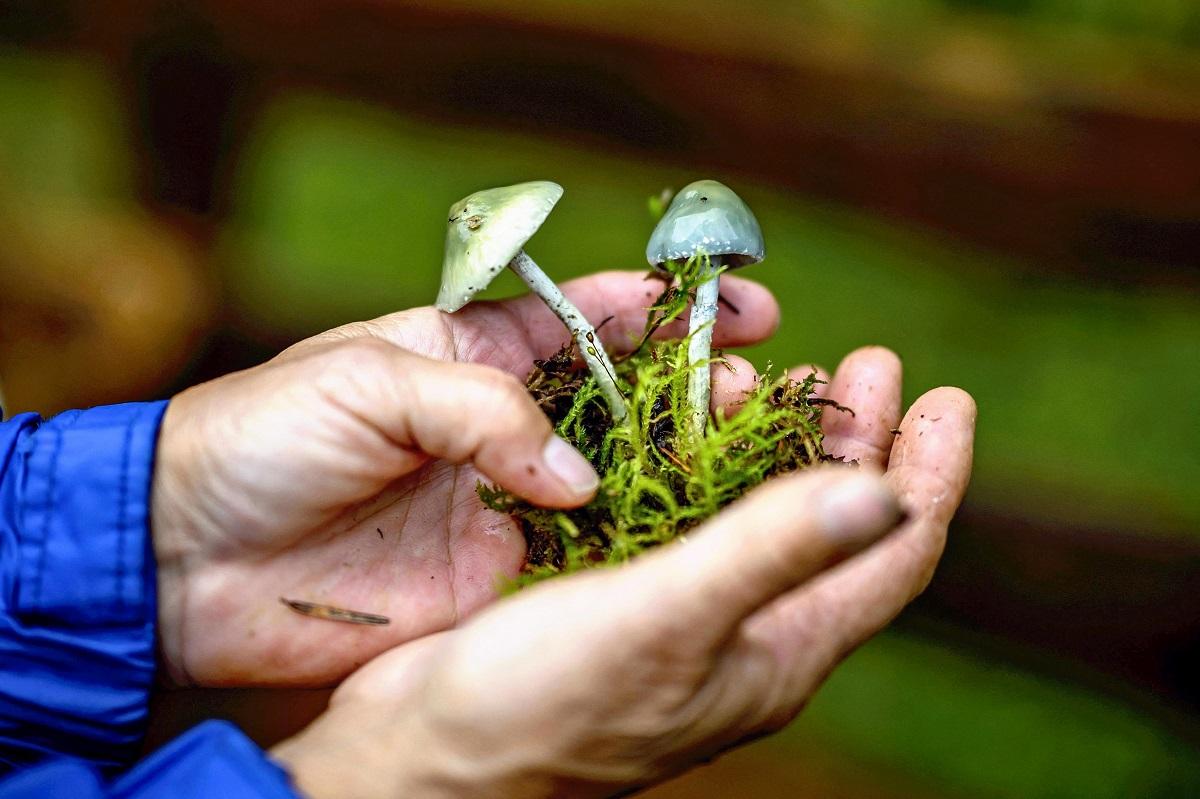
AFP-Jiji
An enthusiast holds mushrooms. -
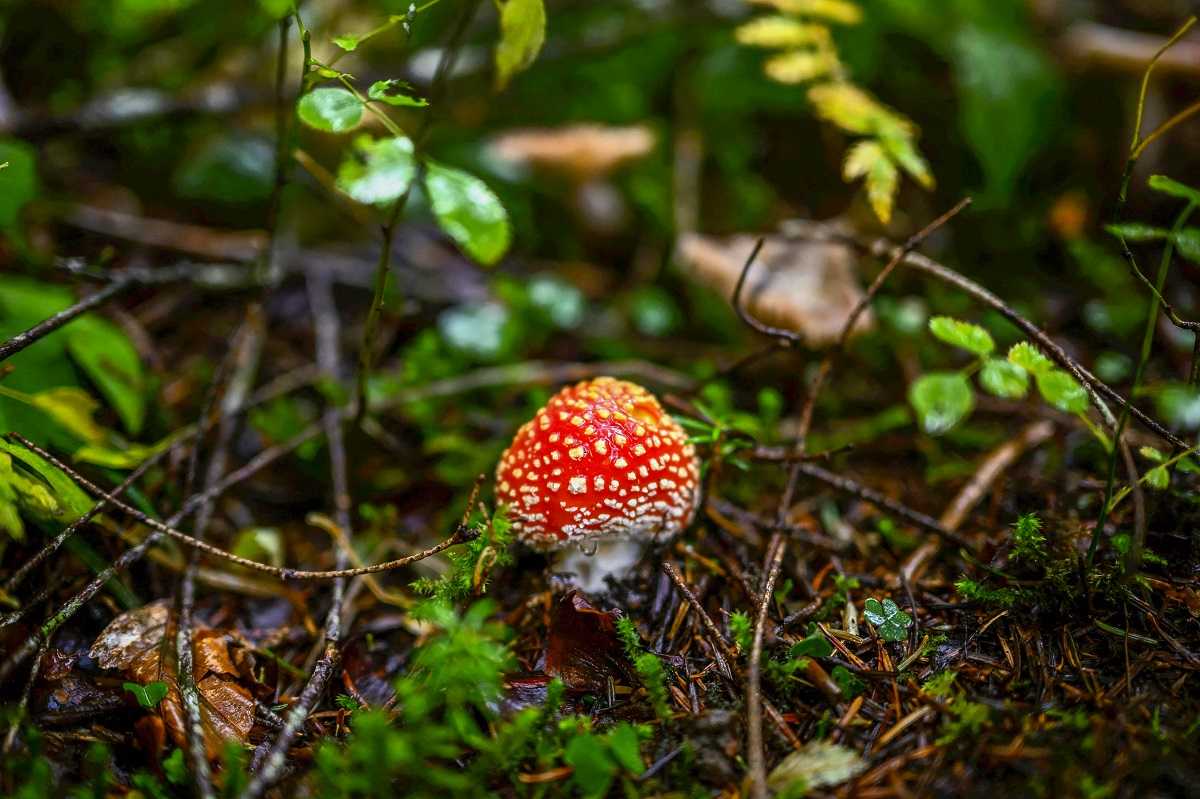
AFP-Jiji
An Amanita Muscaria, commonly known as the fly agaric or fly amanita poisonous mushroom
Forest ecosystem
Mushrooms are not the only wild plants whetting appetites.
There are a growing number of courses on foraging wild edible plants — a trend inspired by a number of top international chefs, including Denmark’s Rene Redzepi and France’s Marc Veyrat.
The Swiss branch of the Euro-Toques association, which represents European chefs and producers committed to quality local produce, organizes plant seminars for its members.
Its president Thierry Brehonnet, head chef at restaurant Le 1209 in the small ski resort of Blonay, has even made wild herbs his specialty, going out to collect them in the gap between lunch and dinner sittings.
“It’s a philosophy,” he told AFP, holding a sprig of sweet woodruff in his hand.
“After COVID, we realized that we had to use products growing close to home. We’re returning to this side of nature, which we have to relearn how to master.”
Brehonnet dismissed concerns that this trend would harm biodiversity, insisting there is far less public interest in foraging wild plants than mushrooms.
“We are not going to pick excessively,” he said. “These plants will be preserved for a few more years.”
Top Articles in Science & Nature
-

Japan Institute to Use Domestic Commercial Optical Lattice Clock to Set Japan Standard Time
-

Japan to Face Shortfall of 3.39 Million Workers in AI, Robotics in 2040; Clerical Workers Seen to Be in Surplus
-

Record 700 Startups to Gather at SusHi Tech Tokyo in April; Event Will Center on Themes Like Artificial Intelligence and Robotics
-

iPS Treatments Pass Key Milestone, but Broader Applications Far from Guaranteed
-

iPS Cell Products for Parkinson’s, Heart Disease OK’d for Commercialization by Japan Health Ministry Panel
JN ACCESS RANKING
-

Japan PM Takaichi’s Cabinet Resigns en Masse
-

Japan Institute to Use Domestic Commercial Optical Lattice Clock to Set Japan Standard Time
-

Israeli Ambassador to Japan Speaks about Japan’s Role in the Reconstruction of Gaza
-

Man Infected with Measles Reportedly Dined at Restaurant in Tokyo Station
-

Videos Plagiarized, Reposted with False Subtitles Claiming ‘Ryukyu Belongs to China’; Anti-China False Information Also Posted in Japan


